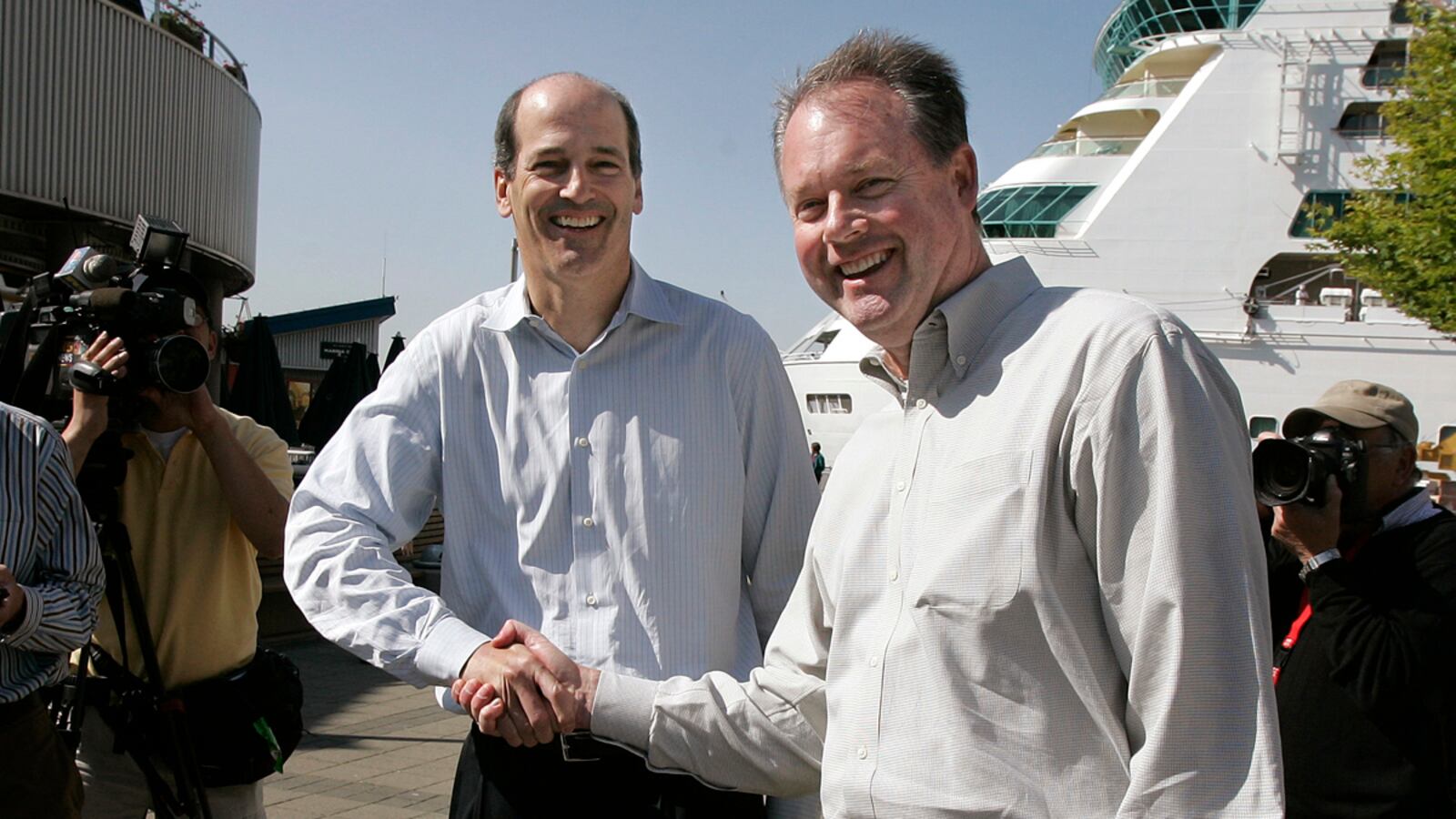In April 2007, Google purchased the online advertising company DoubleClick. A month later, Microsoft, looking to challenge Google’s aggressive move into display advertising, announced the purchase of another online advertising company, aQuantive, at a generous premium over its share price and well over the $3.1 billion Google paid for DoubleClick. On Monday, Microsoft announced a $6.2 billion writedown in its online services division, the result of the acquisition’s failure to expand the company’s online advertising business. The original price for aQuantive? $6.3 billion.
Although Microsoft has given no signal it plans to cease investment and activity in search and advertising, Tuesday’s results are a sobering reminder for the software giant that despite years of mergers, partnerships, and product development, Google is still dominating online advertising and search.
Microsoft’s announcement was not the first indication that its online services division, which includes the search engine Bing, the online portal MSN, and its display-advertising business, was a drag on the company’s otherwise solid core business. The last year that online services turned an operating profit for Microsoft was 2005. Since then, the company’s expansion efforts have led to nothing but year after year of losses, despite the flurry of activity and investment, as well as frequent promises of future positive returns from Microsoft CEO Steve Ballmer.
The all-cash acquisition of aQuantive was one of several big moves Microsoft made into search and online advertising. Just a year after the acquisition, Microsoft attempted to buy Yahoo! outright for $44.6 billion of cash and stock, and the following year it launched its own search engine, Bing, and entered into a partnership with Yahoo to provide Bing search technology to the troubled Internet giant. Microsoft was optimistic that its new products and partnerships could turn into a rival to Google. After European and American authorities cleared the deal, Ballmer described the Yahoo partnership as an “exciting milestone” that would “promote more choice, better value, and greater innovation to our customers as well as to advertisers and publishers.”
At a conference in 2009 following the announcement of the Yahoo-Microsoft partnership, a senior executive in the online-services division told a group of analysts that the “online-advertising industry is in a very good state” and predicted an “ongoing influx from dollars that move from offline to online” He was right about the online-advertising industry as a whole, but the dollars went to Mountain View, not Redmond. Google reported revenues in 2010 and 2011 of $29.3 and $37.9 billion, respectively, with 96 percent of it coming from online advertising.

Tuesday’s announcement of the massive loss stands in stark contrast to the last international news splash from Microsoft: the unveiling of its new tablet computer, Surface. With its moves in search, advertising, and now tablet computing, Microsoft has devoted significant time and resources outside its core operating system and software operations to challenge the core business of a massive and profitable competitor: first Google, now Apple. Microsoft investors are hoping that five years from now, the return on this latest venture is not just big, but also positive.






